As political credos go, the Spanish phrase “Esperar a que escampe” – “Wait until the weather clears up” – hardly ranks alongside “Yes we can”, “¡No pasarán!” – “They shall not pass” – or even “Strong and stable”. But that cautious, circumspect and rain-soaked philosophy has served its principal exponent remarkably well. At least until now. Yesterday Mariano Rajoy took the dramatic decision of moving to impose direct rule over Catalonia.
Rajoy, a 62-year-old political veteran from the equally rain-soaked northwestern region of Galicia, has been Spain’s prime minister for six long and difficult years. In that time, Spain has slowly retreated from the brink of economic catastrophe, witnessed the death of four decades of two-party hegemony, squirmed over a whack-a-mole succession of corruption scandals and spent 10 months deadlocked and government-less.
Through it all, Rajoy has remained Rajoy: calm, patient, inscrutable and slightly awkward. His greatest challenge, however, is bearing down on him in the form of the Catalan independence crisis. Spain’s national unity has not faced a threat of this magnitude since it returned to democracy following Franco’s death and what happens over the next few months will determine not only Rajoy’s political future but also his legacy.
He has become the first Spanish prime minister to reach for the so-called nuclear option of the country’s 1978 constitution, which permits the central government to take control of an autonomous region if it “does not fulfil the obligations imposed upon it by the constitution or other laws or acts in a way that is seriously prejudicial to the general interest of Spain”.
Fed up with the secessionist manoeuvres of the Catalan president, Carles Puigdemont, and bolstered by Spain’s constitution and the rulings of its constitutional court, Rajoy has taken Spain into dangerous and uncharted territory. Until now, the risk-averse prime minister has relied on the familiar strategy that saw him re-enter the Moncloa Palace last October, after months of serenely watching his opponents squabble and squander opportunities to take power.
“Rajoy uses time as a tool and letting time do its job is certainly the approach that he’s applied to the Catalan issue,” says Antonio Barroso, an analyst at the political risk advisory firm Teneo Intelligence. “He probably believes that allowing time to do its work and applying continued pressure to the independence movement [through article 155] will see it implode. That’s worked well for him so far. The question is whether it’s an approach that solves the issue at hand in the long term.”
The problem is that the Catalan crisis is, at least in part, one of his own making. Although support for independence has grown over the past few years, as Spain has suffered a painful and protracted economic emergency, many Catalans are still furious at the role Rajoy’s conservative People’s party (PP) played in torpedoing the 2006 Catalan statute of autonomy, which would have afforded the region greater independence.
In 2010, the PP successfully urged the constitutional court to annul or reinterpret parts of the statute, ensuring that Catalonia was not recognised as a nation within Spain and that the Catalan language was not given precedence over Castilian. That, and many other, age-old grievances, not to mention the Spanish police’s recent, heavy-handed attempts to shut down the unilateral referendum on 1 October, have led to the standoff.
They have also raised questions over the efficacy of Rajoy’s default position.
“Those abilities have served him very well in some situations but not in all of them,” says Pablo Simón, a political scientist at Madrid’s Carlos III University. “By doing nothing, he helped bring the situation in Catalonia to where it is now – to a constitutional crisis. And that’s forced Rajoy out of his comfort zone and into taking drastic decisions.”
The prime minister is not a man used to taking such bold action. He lacks the telegenic confidence of the Socialist leader, Pedro Sánchez, the revolutionary fervour of Podemos’s Pablo Iglesias and the clean-cut certainty of his centrist ally, Albert Rivera, of Ciudadanos. What he does have though, is decades of political experience as an MP, a minister and the leader of the opposition.
“If there’s one thing that everyone can agree on it’s that he’s the definition of a Spanish civil servant,” says Simón. “He’s an administrator, he follows the rules and he’s in no hurry to embark on grand political reforms or changes.”
Simón recalls that some of his friends who work in embassies used to say that Rajoy and the former Italian prime minister Matteo Renzi never got on because they were such different statesmen. “One is pure politics and pure showmanship; the other is calm and almost like something from the 19th century. But no one should look down on his political talents.”
Emilio Sáenz-Francés, a professor of history and international relations at Madrid’s Comillas Pontifical University, says that Rajoy’s quiet manner means he is not naturally suited to the extrovert world of European politics. “Rajoy has a low profile in Europe; he’s not what you’d call someone with irresistible charisma. But he did manage to pull Spain out of an extraordinarily complex economic situation.” Barroso agrees that Rajoy deserves credit for hauling Spain back from the brink of economic ruin, particularly because, as he puts it, “he arrived in the middle of the hurricane”.
It could also be argued, cynically perhaps, that he has done a wonderful job of keeping the PP in power despite the proliferation of corruption scandals it has faced and continues to face.
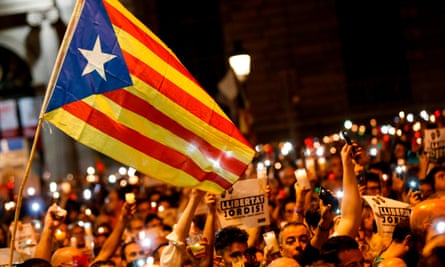
The last few years have seen its former treasurer booted out of the party and charged with bribery, tax evasion and other offences, the former PP head of the Balearic Islands government handed a six-year jail sentence for fraud and corruption and several current and former party members arrested in Valencia as part of ongoing anti-corruption investigations. In July, Rajoy attained the dubious distinction of becoming the first serving Spanish premier to testify in a criminal trial, when he was called to give evidence in the Gürtel case, in which 37 business and political figures are accused of involvement in a kickbacks-for-contracts scheme.
While he has never been accused of any wrongdoing and has managed to survive the kind of death by a thousand sleazy cuts that might have finished off many other European leaders, Rajoy has done little to persuade the electorate that he is committed to tackling corruption; opinion polls suggest it is now Spaniards’ second biggest concern after unemployment.
Simón argues that Rajoy’s biggest failures to date have been his reluctance to send a strong signal on corruption and his refusal to tackle inequality or do more to address the country’s chronic unemployment.
Those issues go a long way to explaining the rise of Podemos and Ciudadanos and the decline of the older parties. Given his age – Rajoy is unique among the leaders of the big four parties in being old enough to have voted in the 1977 election two years after Franco’s death – the PP leader appears ineluctably bound up with the old order; the last prime minister of the politics that lasted from the transición to halfway through the second decade of the 21st century.
Much is also made of Rajoy’s stereotypically Galician demeanour – reserved, hard to read – but those who know him say his awkwardness belies a certain charm. As one PP MP said shortly before Rajoy entered office in 2011: “He will be a good prime minister. But he is not a good candidate. He is much better close up and we often say that if he could just sit down for coffee with every single Spaniard, then he would win them all over.”
Sáenz-Francés argues that while Rajoy is “not a person defined by their charisma”, he has often shown a grim and effective perseverance. “He’s pretty determined when it comes to solving problems even if some people say he solves them by doing nothing until they solve themselves.” But, he adds, “it’s still effective”.
The question now is just how effective Rajoy’s Catalan gamble will be and whether its success or failure will eclipse his economic achievements. Speaking after his election six years ago, the new prime minister pleaded for time and patience as he set about his unenviable task of tending Spain’s sick economy. Today, his words seem prophetic, if a little understated.
“It is no secret to anyone that we are going to rule in the most delicate circumstances Spain has faced in 30 years,” he said. “There will be no miracles; we haven’t promised any.”
THE RAJOY FILE
Born Mariano Rajoy Brey, 27 March 1955, in Santiago de Compostela, Galicia. Law degree from the University of Santiago de Compostela. Married with two children.
Best of times His landslide election victory in 2011; overseeing Spain’s recovery from economic crisis, playing it cool and biding his time to gain a second term in office.
Worst of times Testifying in court over allegations that an illegal funding racket operated within the People’s party during his time as its vice secretary general.
What he says “We’re going to stop [Catalan] independence happening. And I can tell you with absolute sincerity that it’s not going to happen.” Interview with El País, 8 October 2017)
What others say “Today is a black day for our democracy. For the first time, a serving prime minister has had to sit down in court and testify about corruption in his party.” Pedro Sánchez, leader of the Spanish socialist party.
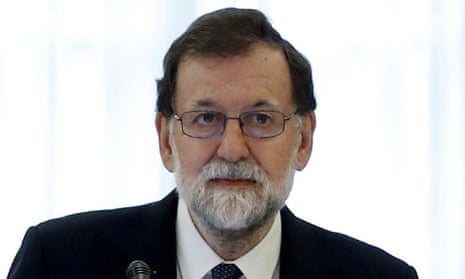

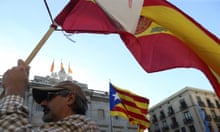
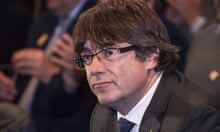
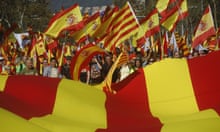
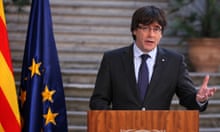
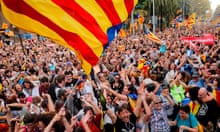



Comments (…)
Sign in or create your Guardian account to join the discussion